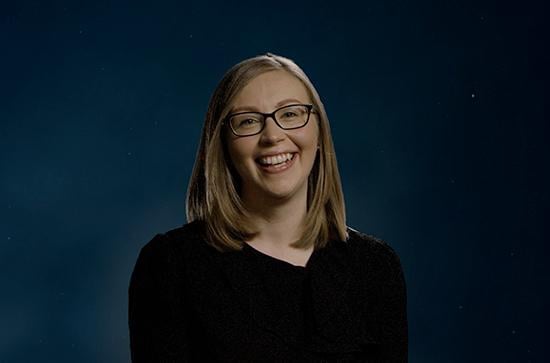Therese Holton

Therese, who completed her BSc in 2007 and a 2011 PhD in Genetics and Bioinformatics, credits Maynooth with giving her both the education and personal experiences that helped her get where she is today.
Therese also met her husband, Ronan Anglin (’08 Computer Science grad) at Maynooth, and has developed close friendships through the Galway Cycle, which she has done for several years
“The Biology Department really instilled the importance of basic research, along with encouraging us to take education further – that I really could do a PhD afterwards. It’s fantastic to promote that belief in yourself. I don’t know if it’s the same at other universities, but I really got that sense from Biology Department at Maynooth.”
“One thing I certainly never thought when I decided to study in Maynooth was that it would lead me to meet Bono!” But that it did. For Therese Holton, one of five Holton sisters from Donadea to attend Maynooth University, her undergraduate and doctoral degrees led her down an emerging field of science that has attracted the attention, and investment, from Bono and The Edge.
At Nuritas we are combining the use of artificial intelligence and machine learning to inform ingredient discovery. It’s fascinating work and I love it. My role is to collate all of our research activity and scientific outputs and communicate them to the world.”
The Maynooth University alumnus today works at one of the most exciting companies in Dublin, Nuritas, which combines artificial intelligence and genomics to “unlock the hidden health benefits in food. It’s food as medicine,” Holton says.
Dublin-based Nuritas is mining peptides found in food and plants to tap their potential to treat disease and chronic illness.
“What’s different about Nuritas is that we’re pioneering the use of science and data in the food space. Right now, it’s quite random how functional ingredients are discovered, and more often than not the active component is not known. At Nuritas we are combining the use of artificial intelligence and machine learning to inform ingredient discovery. It’s fascinating work and I love it. My role is to collate all of our research activity and scientific outputs and communicate them to the world.”
Therese, who completed her BSc in 2007 and a 2011 PhD in Genetics and Bioinformatics, credits Maynooth with helping her get where she is today.
“The Biology Department really instilled the importance of basic research, along with encouraging us to take education further – that I really could do a PhD afterwards. It’s fantastic to promote that belief in yourself. I don’t know if it’s the same at other universities, but I really got that sense from Biology Department at Maynooth.”
